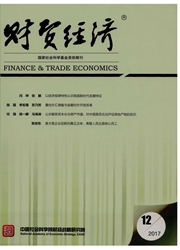

 中文摘要:
中文摘要:
伴随着我国创业板市场的建立,一个有趣的现象频频发生,许多高管在上市不到一年的时间里选择了离职。为此,本文以公司所有高管为研究对象,在区分主动和非主动离职的基础上,考察了公司高管主动离职的影响因素及其财富效应。我们研究发现,高管持股市值对其主动离职有显著影响,随着持股市值的提高,高管主动离职的可能性增加,而且,当公司业绩较差时,持股市值对高管主动离职的影响更为明显。基于离职事件累积超额报酬的分析显示,市场对高管主动离职反应负面,而对非主动离职无显著反应。
 英文摘要:
英文摘要:
With the set-up of GEM market in China, there emerges an interesting phenomenon that many executives of listed companies voluntarily resign in less than one year after IPO. Employing all executives as sample and differentiating voluntary and involuntary resignations, the authors investigate the determinant and wealth effect of executives' voluntary resignation. They find that the market value of executives' ownership has an important effect on voluntary resignation. The higher the market value of their shares, the more likely their voluntary resignations happen. Furthermore, such impact is more pronounced when the firm performance is bad, and the executives of firms with lower earnings are more likely to resign when the market values of their holdings are higher. Finally, the paper examines the cumulative stock return around executives' resignation. It is shown that the market has a negative response to executives' voluntary resignation, hut executives' involuntary resignation doesn't have any influence in stock price.
 同期刊论文项目
同期刊论文项目
 同项目期刊论文
同项目期刊论文
 期刊信息
期刊信息
